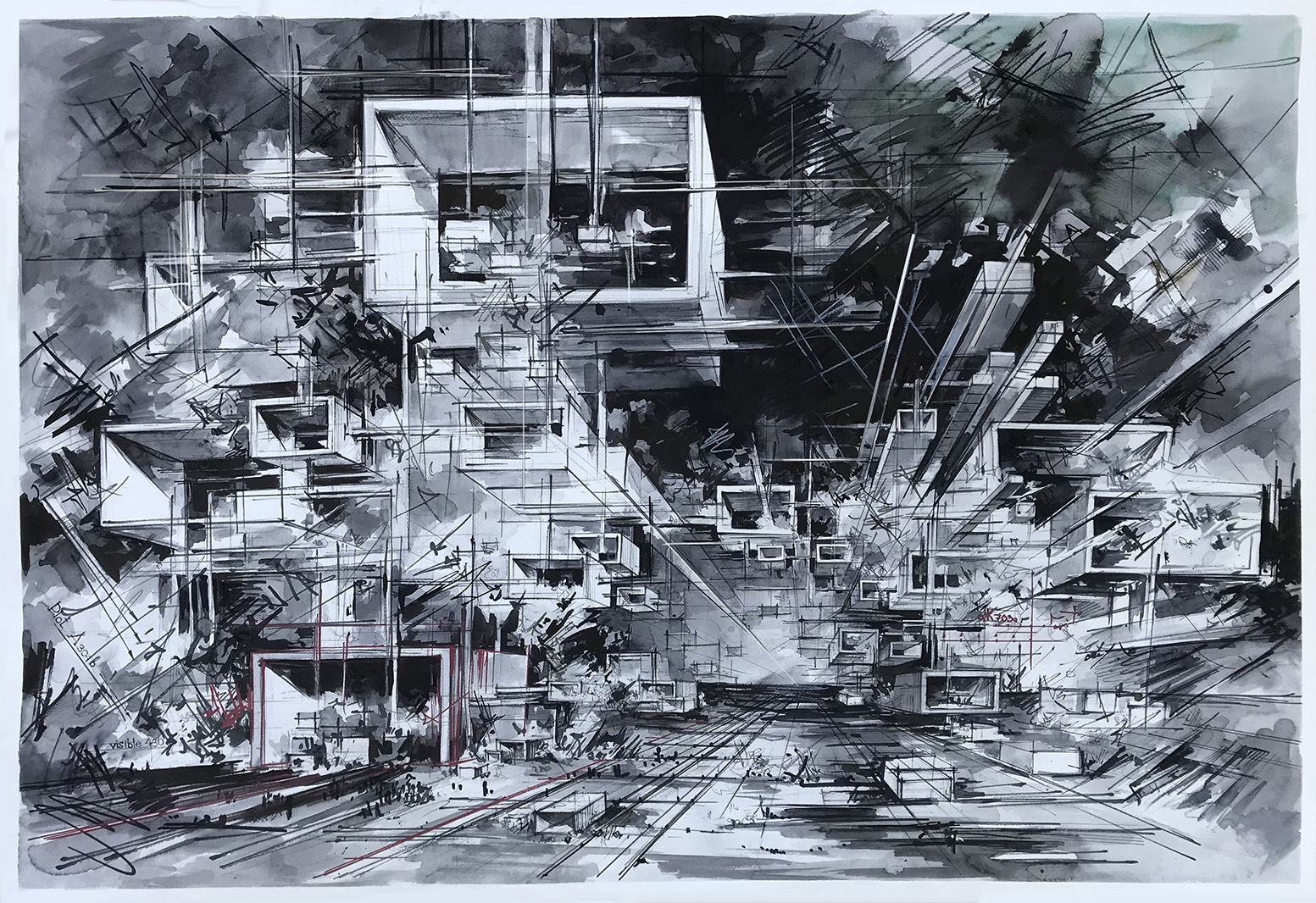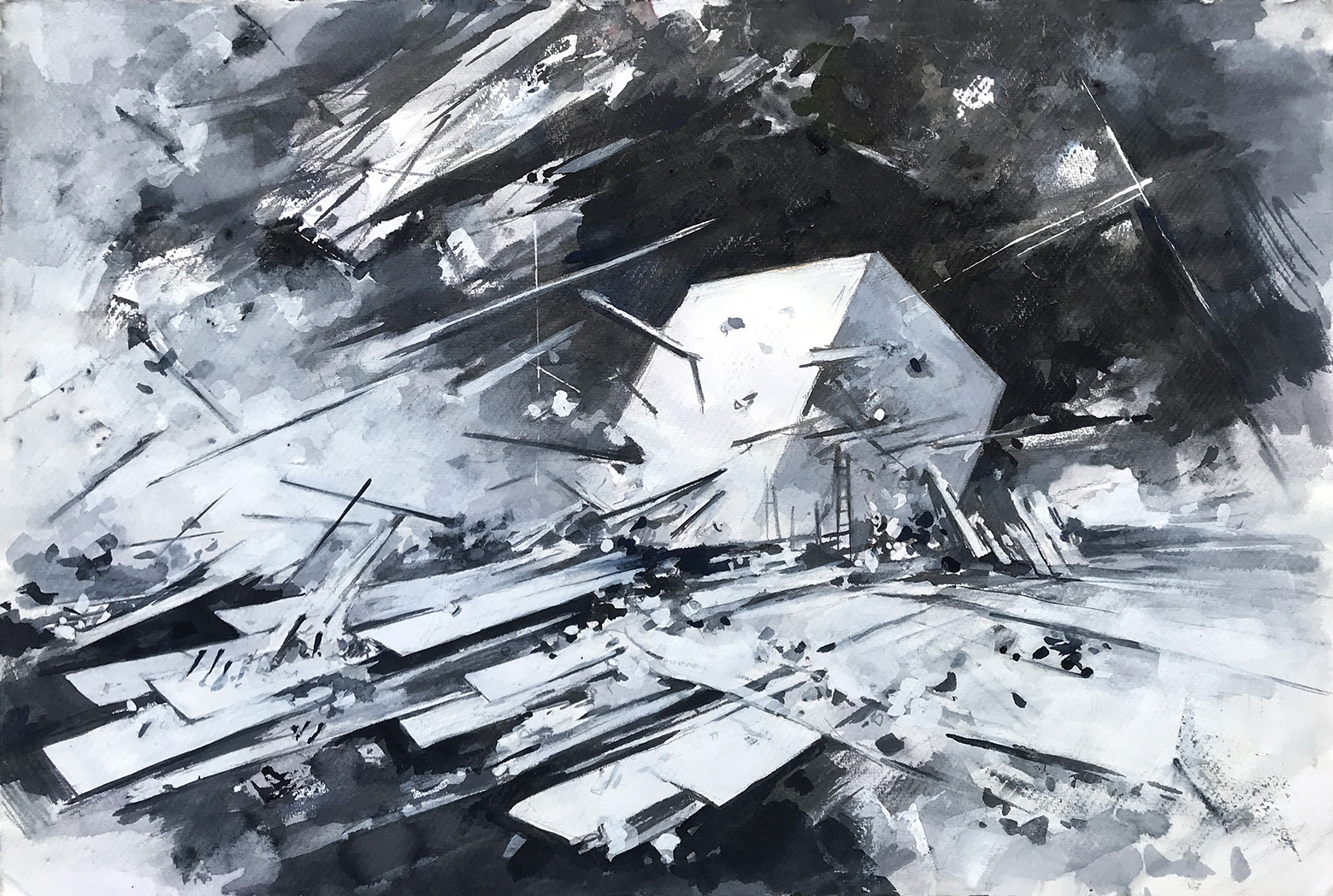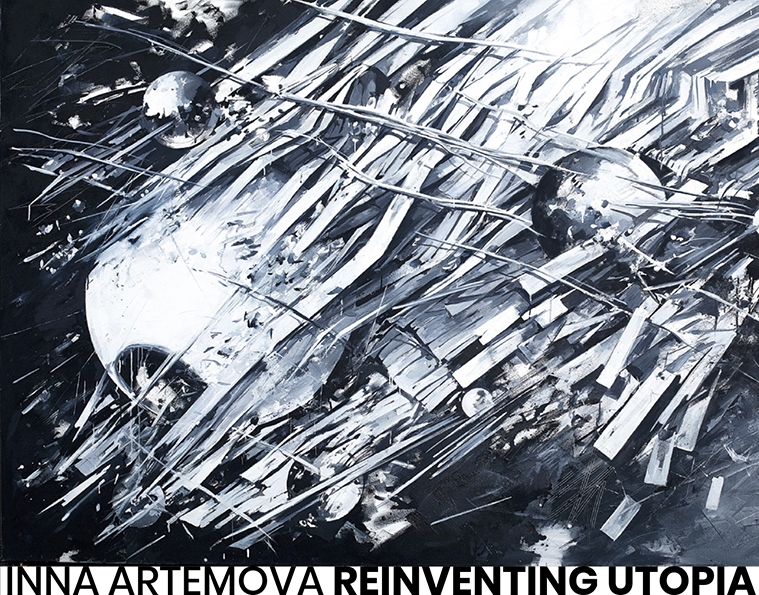 |
 |
INNA ARTEMOVA
(b. Moscow, USSR. Lives and works in Berlin.)
Born in Moscow, Inna Artemova studied architecture at the Moscow Architectural Institute (MArchI). For her diploma project, she received the 2nd prize of the Russian Federation. In 1998 she moved to Berlin and started to focus on her work as an artist in the field of painting and drawing. Recent major exhibitions include: “Points of Resistance” with MOMENTUM, Berlin (2021); the Lahore Biennale, Pakistan (2020); and the Kyrgyz National Museum of Fine Arts presented her works in the solo show “Landscapes of Tomorrow” (2019). She has had numerous solo and group exhibitions in Germany, Austria and Italy. Additionally, her works were shown at international art fairs in Germany, the Netherlands, Switzerland, Denmark, the US, and Japan.
Artemova’s practice remains heavily influenced by her professors at the MArchI in Moscow, the “Paper Architects“, a movement originating in the 1980s that developed futuristic architectural creations never intended to be realized. The visionary projects of the Paper Architects and her experience of the failure of the communist utopia with the fall of the Soviet Union, has led Artemova to explore, through her constructivist painting style, the ideas of architectural utopias from the 1960s up to her own futuristic visions. In creating utopian landscapes and spaces, Artemova interrogates the future of living spaces and their impact upon human relationships. The concept of utopia stands for a space of possibility in human consciousness in which the crucial questions have to be answered again and again: Is there no alternative to the reality in which we live? What will we do in the future? Do we have to fail because of our ideal ideas?
Utopia #4532
2020, ink, marker, pencil on paper, 75 x 110cm

Utopia #3275
2019, 36 x 53cm , ink, marker, pencil on paper

Utopia #4532 (2020) and Utopia #3275 (2019) are two out of a series of over 40 diverse works sharing the title of Utopia. Yet while the definition of utopia is the dream of a perfect society, these particular paintings evoke a sense of impending cosmic cataclysm more so than an idealized state of perfection. Whether meteors crashing through the cosmos, or the viral structures with which we have become all too familiar in the past year of pandemic, or the aftermath of some volatile force, these works send a suitably ambiguous message about the future and the present. Contriving to comingle a notion of existential threat with the sense of the sublime, these works can be seen as portraits of our precarious times. Having witnessed first-hand the collapse of the Communist utopia in her native Soviet Union, Artemova’s utopias are fragile constructivist visions in a state of constant flux; exploding, imploding, teetering on the edge of a perilous balance, or perhaps already being rebuilt. Every collapse presents the hope of a new beginning; a renewed dream of a more perfect future. Utopias are too often built on the ashes of their opposites.
[Rachel Rits-Volloch]


 Back to Index
Back to Index